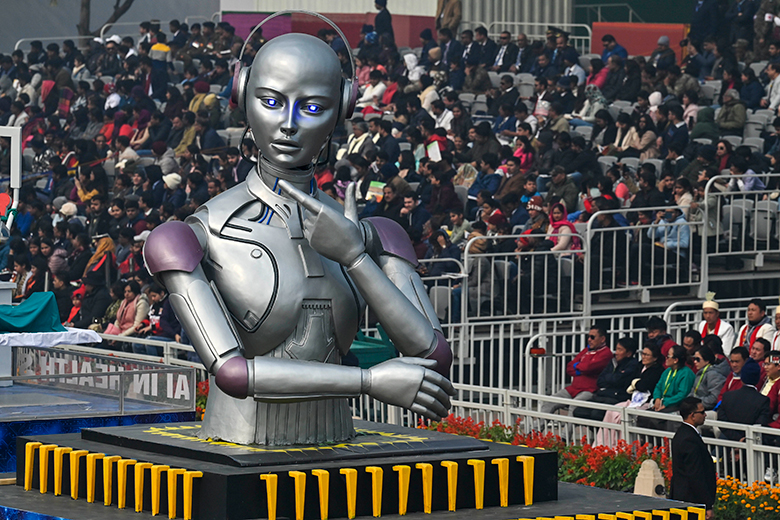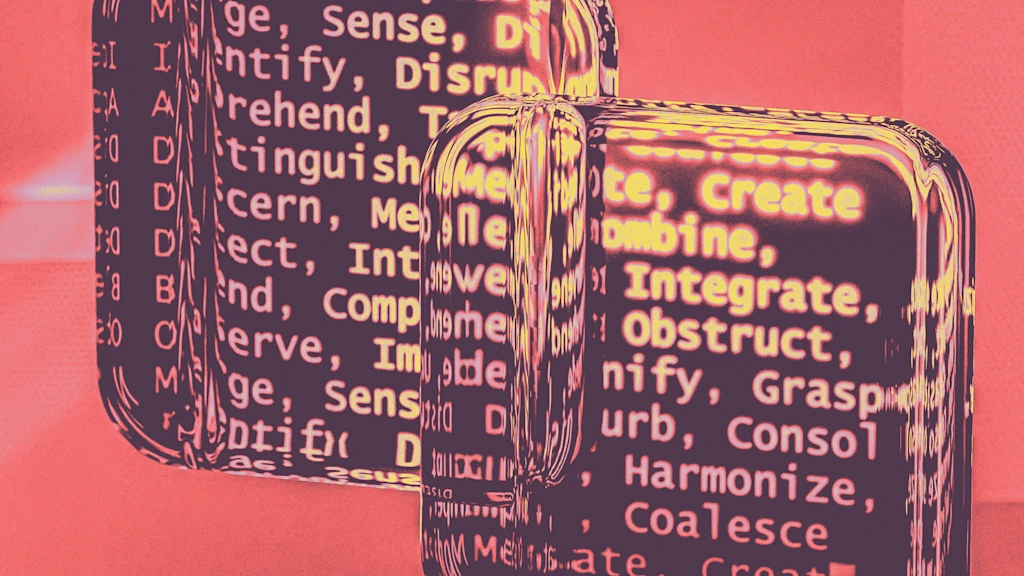Will liberal arts education emerge with a still-beating heart from the worldwide onslaught that has been unleashed on it – and on other cornerstones of traditional liberal democracy – by populist dictators? And even if it does, what will it look like in a world dominated by a machine intelligence that has already started to take a disproportionately large stake in maintaining existing power structures and predispositions? We had a sneak preview of the answer recently in the comments of an entrepreneur and trustee of a private liberal arts university in India.
In May, Indian public opinion was violently polarised by the arrest of Ali Khan Mahmudabad, an associate professor of political science at Ashoka University, for two posts on X about the air strikes that India launched on Pakistan in retaliation for its neighbour’s alleged support of a terrorist group that massacred 25 Indian tourists and one Nepali in Kashmir.
Mahmudabad expressed ironic approval for the right-wing commentators who were “applauding Colonel Sofiya Qureshi”, a Muslim officer who gave details of the military action during media briefings. He added, in reference to a recent rise in anti-Muslim violence in a country governed by the Hindu-nationalist BJP, that they “should also demand that the victims of mob lynching, arbitrary demolitions, others who are victims of the BJP’s hate mongering be protected as Indian citizens”. Mahmudabad was arrested by local police following allegations by Renu Bhati, chair of the Haryana Women’s Commission and a BJP supporter, that his comments demeaned women.
This incident, emblematic in its own right of the fragile security of free thought in India today, stoked even more controversy when Sanjeev Bikchandani, one of Ashoka’s founders, responded to an anguished query from an alumnus about the “lack of support” for Mahmudabad shown by the private liberal arts university, which began operating a decade ago. Bikchandani sent a public letter to the university community, which was eventually circulated in the media, arguing that the relationship between liberal arts education and activism was by no means given, and that to engage in activism, or keep away from it, was a matter of choice: part of the freedom that liberal education offers.
The most striking aspect of his argument, however, was that he supported it by quoting comments from Google AI – proudly cited as such. In that sense, his letter does far more than indicate the closing of the Indian mind against academic dissent. It reveals that the already-real continuum between human and artificial thinking is poised to diminish the freedom of thought and action that was the traditional foundation of a liberal arts education.
Whatever Bikchandani and his mechanised sidekick might argue, there is no denying that foundation. Neither can we deny the importance of maintaining plural viewpoints and ideologies from every part of the political spectrum as legitimate subjects of discussion in classrooms, on campuses, and in public utterances by students and academics. Much of the contemporary angst against universities articulated by the populist right in both India and the US is fuelled by the sense that campuses allow only one kind of view – those leaning to the left – and to the extent that this is true, it is a legitimate criticism. But it is impossible not to see the use of AI to stipulate a definition of liberal arts education with no necessary connection to activism as a machine-assisted step towards resolving the conflict that has always existed in the Asian enterprise of liberal arts education – and not to the benefit of that enterprise.
The connection between neoliberal economics and liberal arts education, particularly in contemporary Asia, has been noted by many. Given the resources that liberal arts education requires, particularly to support its distinctive kind of pedagogy and pastoral care, this is perhaps inevitable to some degree, as I’ve realised through my time working in private universities in the US and India.
But the connection takes a particularly acute form in Asia, where governments are intolerant amid societies that are hierarchy-ridden and markets that are oligarchy-ridden. What Harvard University is doing to resist the Trump administration’s attempts to strip it of its research grants, international students and aspects of its autonomy would be impossible for Ashoka to do, not only in the absence of the American university’s huge economic and cultural capital built over centuries, but, more crucially, in the absence of a long and robust tradition of intellectual and academic freedom in India to support the condition of such resistance.
The Indian entrepreneurs and corporate leaders who, in recent years, have founded liberal arts universities such as Ahmedabad, Krea and Ashoka, were driven by the prospect of creating more employable graduates than India’s rigidly traditional universities can, with a range of linguistic, scientific and analytic aptitudes. But the idea that liberal arts education could turn out graduates smart enough to be productive, well-rounded citizens of the corporate world but not smart enough (or willing enough) to question authority always had that crack of contradiction running through it.
The historian Ajay Skaria has recently approached this from a different angle, pointing out that to neoliberal entrepreneurs, liberal arts education is a matter of private pleasure, edification and advancement that has little to do with public or communal responsibilities. Naturally, for such entrepreneurs, the very perception of the university is different from that of a Western liberal arts institution administrator or even board chair; as Skaria argues, Bikchandani’s letter reveals “his yearning to be able to treat Ashoka as he would a private company”.
As someone who has had a deeply fulfilling career-span of nearly a decade at Ashoka, I know that this is, for the most part, not true. The founders I know closely – those actively involved in the running of the university – genuinely understand that without freedom and autonomy in thought, action and governance, a university cannot aspire to become notable – something, many would say, that Ashoka has already started to achieve. And, at root, Bikchandani’s message merely reaffirms what the university’s position has always been: that while members of its community have the freedom to say what they like in public, the institution will not defend them should their comments get them into trouble and will disavow any agency in the utterance of individual opinions.
Yet there is no denying that we are living in a time of unprecedented ideological and political intolerance thanks to the hyper-digitised and instantly-connected nature of our lives. And what is particularly ominous is how quickly and pervasively AI has entered this conflict. It certainly feels that way when a key university founder uses a calculated prompt to buttress his own position about the relation of education and activism.
As Skaria points out in his thoughtful essay, published in The Wire last month, action that challenges prevalent social norms, of whatever political colour, is likely to be classed as activism. This is exactly what AI can be deployed to suppress. Machine intelligence, as many experts have already pointed out, reflects dominant ideology, including existing social prejudices against minoritised and vulnerable peoples. Indeed, as Mo Gawdet, the entrepreneur and former chief business officer of Google’s “moonshot” spin-out, Google [X], has argued, AI is already well on the way to being “a replica of the masculine geek mind”.
The former key Google administrator adds that in its infancy, AI has been “assigned the mission of enabling the capitalist, imperialistic ambitions of the few – selling, spying, killing and gambling”. Obviously, its work is not actually called by these names, but rather in terms we find more palatable – ads, recommendations, defence, security and investment. But much, if not all, of this is deployed to retain and enhance dominant political and commercial forces, and the ideologies bolstering them.
There is still time to change this as AI is very much in the process of being shaped and trained. But it will be trained by the very manner of its usage. If all it’s used for is the maximisation of profit and majoritarian power, to the exclusion of nurturing communal values and concern for the marginalised, AI will promote a future in which weak and inefficient humanity can be eliminated in favour of productive machine intelligence.
The university has been one of the last remaining places to dispassionately examine and critique ideologies of power and profit – and to voice dissent that can spread beyond the campus and become the conscience of communities. But the brutal suppression of dissent against state action in universities across the world is undermining that role. As such, we have inherited an environment where the ethical use of AI – or even contrarian use of it to seek an alternative worldview – is already starting to feel like a lost cause.
An immediate example is the very question Bikchandani typed into Google AI: “Are all liberal arts universities activist in nature?” Notwithstanding its apparent objectivity, his use of the word “all” set it up for an answer that would portray activism as disconnected from the liberal arts mission. Moreover, the greyness of Ashoka’s “disavowal” of critique cannot but, at least in some instances, run counter to the mission of a university to act as a safe space for educating communal sensibilities and moulding responsible thinkers and citizens. If the university is not meant to be – or not empowered to be – such a space any longer, then what hope does the world have?
The space for dissent has now shrunk particularly radically in India, where the party in power at the centre enhances its grip on society through a pervasive crony capitalist network, involving dominant business and media interests, and deploys income tax raids and investigations as a weapon of punishment against dissent. Such networks make capitulation to state authority a natural and inevitable fate even for the neoliberal entrepreneurs who have sought to create a viable model of private liberal arts universities in the country. Their strategic instrumentation of AI to justify stopping short of offering moral as well as financial support for the liberal arts ethos is a bleak omen that this capitulation will happen swiftly and inexorably, with an appearance of reason and objectivity that is as deceptive as the apparent impartiality of machine intelligence itself (a deceptiveness of which Bikchandani must have been aware).
Dissent and activism is the gift of liberal arts education in a world that feels increasingly shaped by techno-feudalism and intolerant authoritarianism. But it is now clear that the nexus of neoliberal and state power is not a long way off from strategically deploying AI as a powerful tool to suppress the legitimacy of dissent even within the university community.
Saikat Majumdar is a professor of English and creative writing at Ashoka University and is currently a senior fellow at the Institute of Advanced Study in Budapest. These are his personal views.










